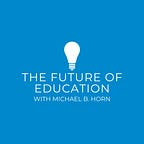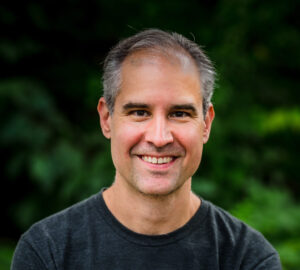May 5, 2023
Not Your Parents’ Teach for America
An item from a neo-liberal… This one is an item from a business professor with little direct experience in education, but who believes free market economic principles are the answer to education’s (and pretty much all other society’s social) problems.
Open in app or online Teach for America is known for taking college graduates and placing them in schools as educators to serve the nation’s most vulnerable children. Those corps members in turn often become leaders in helping transform education in the United States. But Teach for America is increasingly paying attention to the education system itself—and acknowledging that it was never built to optimize learning for most students and that therefore it needs to reinvent itself. As a result, it launched its Reinvention Lab with the goal of reinventing learning systems—and perhaps reinventing Teach for America itself in the process. Michelle Culver, who leads the Reinvention Lab, joins me in this conversation to detail more what the work looks like and why it matters. Some of the highlights for me were when Michelle spoke about:
- The Reinvention Lab’s incubation of Ignite, a tutoring organization that is getting some terrific learning outcomes with students;
- Her analogy of how the Bay Bridge was built—the new was built while the old was rebuilt and then maintained until all the traffic moved over to the new segment by segment—as a way to think about how we have to attend to the old system even as we foster the new. That’s such a powerful metaphor for me that really helps summarize what Dual Transformation is all about;
- And her discussion of AI and education.
Subscribers can listen to the conversation, watch the video below, or read the transcript.
Michael Horn: Welcome, welcome, welcome to The Future of Education, where we are obsessed with helping all individuals build their passions and fulfill their human potential. And today we have a guest, Michelle Culver, who I suspect is dedicated to something similar. Michelle, it is good to see you. Welcome to the show.
Michelle Culver: Thrilled to be here, Michael. Thanks for having me.
Horn: Yeah, you bet. So let’s start with biographical information and where your own personal conviction comes for the important work of education, but also Reinvention Lab sounds like it’s up to something maybe bigger than we’ve historically thought of. Schools as they are right now, reinventing them in some way. So just talk about your personal journey into this work first and then we can talk about what the work is itself.
Culver: Okay. Well, I began my career teaching in Compton in the late ’90s. And for me at the time, and even actually still today, I still think of the act of teaching as an act of activism. So for me as a college student, as a young person, I remember being in New Orleans and I was so struck by, I could not come to groups with the difference between my public education that I had received growing up in Montgomery, Maryland, which was really quite good, and what the students who I’d gotten to know while I was volunteering at the housing projects in New Orleans were getting. And that just growing outrage inside of me was very present when I found out about Teach For America. So I joined the corp at the time in ’99, and it was a way for me to get into action on becoming a part of a community and stepping into this radical injustice that we see in our country.
But I’ll say this, you asked about Reinvention specifically, that’s more recent. So that was a while ago. Actually, I should say this too. There’s something that happens when you’re a corps member, and this is not unique to me as an alum, but you start to fall in love with your students. And when you become so in love with your kids, you become unwilling to accept what the system has charted for them. And so what was started as a two-year commitment is now well over two decades. And so it’s almost because I’ve stayed in it that this desire to understand how to reinvent systems has been a emerging conclusion, or at least question, I should really say it’s a question. And it was in my last role, before starting the Reinvention Lab, that I started to grow really convicted around this.
And it was because I had this unique opportunity as a part of Teach For America’s senior team on a national stage to get the rare privilege to just be immersed in some of our fastest improving school systems in the country. And the reason that’s important is twofold. One is when you’re young, you naively expect that the world is going to change, but over time, it was a rare opportunity to actually witness that when communities come together around a bold vision, that change is actually possible. And that’s important because these days we are disillusioned. It is hard to find hope and inspiration. And so I do not take it for granted ever that I can wake up with evidence-based hope, evidence-based optimism. And yet, because I saw what many consider the best of the best, I had this unease, this growing dissonance that I thought, well gosh, if you take these models, put them on steroids, fast-forward through to its most logical conclusion, this cannot be it.
And so that growing dissonance got me to a place where I kept thinking, not that I’m not proud of some of these hard fought wins in the last several decades, but I’m not doing another two decades like this. And so that was growing inside of me, that real dissonance. And I became a mom at that time, I had kids later in life. And I enrolled my kindergartner, at the time, in a school here in Denver that’s designed to optimize for curiosity. So the tagline is where learners are co-architects of their education. So she shows up, Elsa, my oldest daughter shows up, first week of school and they say, “Elsa, what do you want to study?” And we had just recently seen some community theater, and so she said, “I want to study plays.”
And so the first thing that the school did is they took her out of the school building, put her next to a female director while she was casting so she could ask questions about are you making those choices in the context of the real world? And then she came back and they matched her with an older buddy, and this older buddy of the school helped her then write a play, cast her peers, direct, and then star in this play in front of the whole school. So at the time I sat in the audience and, Michael, I lost it. And the tears…
Horn: I bet. Crying, yeah.
Culver: The tears and the tears were coming for two reasons. One is I’m a proud mama, that’s my girl. I’m so proud. But it was actually just a moment of deep humility. I had helped to craft at Teach For America curriculum around high expectations for all kids and scale this with thousands of leaders across our country, and yet it had never occurred to me that a five-year-old could do this. And so I just had this thought where it wasn’t the case that I believe this model is the right model for all students or for all families, but I did have that opportunity to make that choice for my own daughter.
LIKE
COMMENT
RESTACK
© 2023 Michael Horn
No comments yet.
RSS feed for comments on this post. TrackBack URI
- SEO Powered Content & PR Distribution. Get Amplified Today.
- PlatoAiStream. Web3 Data Intelligence. Knowledge Amplified. Access Here.
- Minting the Future w Adryenn Ashley. Access Here.
- Buy and Sell Shares in PRE-IPO Companies with PREIPO®. Access Here.
- Source: https://virtualschooling.wordpress.com/2023/05/05/not-your-parents-teach-for-america/
- :has
- :is
- :not
- :where
- $UP
- 11
- 24
- 40
- 8
- a
- About
- Accept
- across
- Act
- Action
- Activism
- actually
- ago
- AI
- All
- also
- america
- an
- and
- Another
- answer
- ARE
- around
- AS
- At
- attend
- attention
- audience
- auto
- back
- Bay
- BE
- became
- because
- become
- becoming
- been
- before
- began
- begin
- being
- believe
- believes
- below
- BEST
- Bet
- between
- bigger
- bold
- both
- BRIDGE
- build
- Building
- built
- business
- but
- by
- came
- CAN
- cannot
- Career
- case
- Category
- Center
- change
- Children
- choice
- choices
- clear
- College
- come
- comes
- coming
- comment
- comments
- commitment
- Communities
- community
- conclusion
- Consider
- context
- Conversation
- conviction
- Corp
- could
- country
- craft
- Crying
- curiosity
- Curriculum
- data
- Days
- decades
- dedicated
- deep
- Denver
- designed
- detail
- DID
- difference
- direct
- Director
- discussion
- do
- doing
- Economic
- Education
- educators
- emerging
- end
- enrolled
- Ether (ETH)
- Even
- EVER
- expect
- expectations
- experience
- Fall
- families
- fastest
- feedback
- female
- Find
- First
- For
- Foster
- found
- Free
- from
- front
- Fulfill
- future
- get
- getting
- Girl
- goal
- going
- good
- granted
- Group’s
- Grow
- Growing
- Guest
- had
- happens
- Hard
- Have
- having
- helped
- helping
- helps
- her
- here
- High
- highlights
- historically
- hope
- housing
- How
- How To
- HTTPS
- human
- i
- I’LL
- identifier
- if
- Ignite
- immersed
- important
- improving
- in
- increasingly
- INCUBATION
- individuals
- information
- injustice
- Inspiration
- into
- IT
- ITS
- itself
- joined
- Joins
- journey
- just
- kids
- Know
- known
- lab
- Last
- Late
- later
- launched
- leaders
- Leads
- learning
- least
- Life
- like
- little
- logical
- LOOKS
- lost
- love
- make
- Making
- many
- Market
- Maryland
- matched
- Matters
- member
- Members
- Meta
- Michael
- model
- models
- mom
- moment
- more
- most
- much
- National
- Nations
- needs
- never
- New
- New Orleans
- next
- now
- occurred
- of
- often
- Okay
- Old
- oldest
- on
- ONE
- Opportunity
- Optimism
- Optimize
- or
- organization
- Other
- our
- out
- outcomes
- over
- own
- part
- paying
- perhaps
- person
- personal
- Place
- placing
- plato
- Plato Data Intelligence
- PlatoData
- Play
- plays
- possible
- Post
- potential
- powerful
- present
- presentation
- pretty
- principles
- privilege
- problems
- process
- Professor
- projects
- proud
- public
- put
- question
- Questions
- radical
- RARE
- Read
- real
- real world
- really
- reason
- reasons
- received
- recent
- recently
- reduce
- remember
- resource
- result
- Role
- Said
- say
- Scale
- School
- Schools
- see
- seen
- segment
- senior
- serve
- several
- she
- should
- show
- Shows
- similar
- Simple
- site
- So
- Social
- some
- something
- spam
- specifically
- Stage
- Star
- start
- started
- Starting
- States
- stayed
- stepping
- Still
- Student
- Students
- Study
- such
- summarize
- syndication
- system
- Systems
- TAG
- Take
- taking
- Talk
- Teaching
- team
- than
- thanks
- that
- The
- The Future
- the world
- Theater
- their
- Them
- then
- therefore
- These
- they
- thing
- think
- Thinking
- this
- those
- thought
- thousands
- thrilled
- Through
- time
- to
- today
- together
- too
- took
- traffic
- Transcript
- Transform
- Transformation
- TURN
- Tutoring
- two
- under
- understand
- unique
- United
- United States
- until
- very
- Video
- vision
- Volunteering
- Vulnerable
- Wake
- Wake Up
- want
- was
- Watch
- Way..
- we
- week
- welcome
- WELL
- were
- What
- when
- which
- while
- WHO
- whole
- why
- Wins
- with
- witness
- WordPress
- Work
- world
- write
- yet
- you
- young
- Your
- zephyrnet







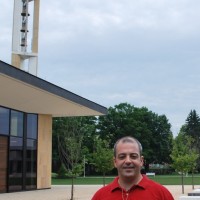
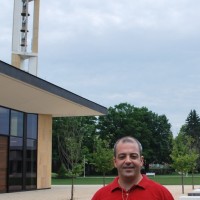

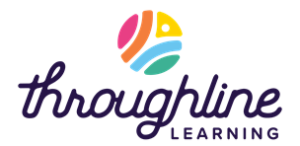
![[IRRODL] New notification from The International Review of Research in Open and Distributed Learning](https://platoaistream.com/wp-content/uploads/2023/12/irrodl-new-notification-from-the-international-review-of-research-in-open-and-distributed-learning.jpg)
